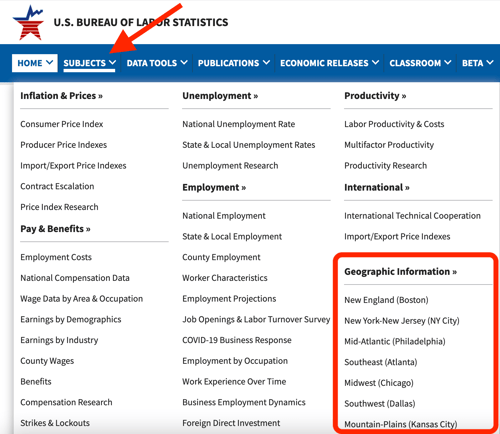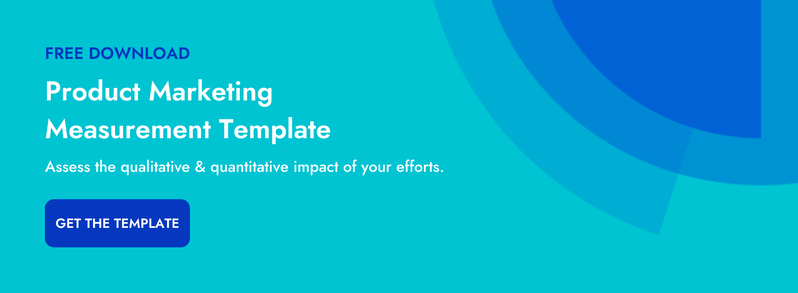Crayon's Product Marketing Spotlight is a video interview series where we chat with product marketers to get a glimpse into their careers and gain unique insight into product marketing strategy. In this edition of the Product Marketing Spotlight Series, we shine the light on Ankita Asthana of Fosfor by Larsen & Toubro Infotech.
Video interview transcription:
MC: Hi, my name is Mackenzie Colcord and I am the host of Crayon's Product Marketing Spotlight series. Today I have joining me Ankita Asthana, the Product Marketing Manager at Fosfor, which is a business unit launched by LTI. Thanks again for being here.
AA: Thanks, Mackenzie. Thanks for inviting me.
MC: Yeah. So you're based over in India, correct?
AA: Yes.
MC: Very awesome. So, tell me a little bit about your company, and your career path that brought you to this point. I know you're a pretty active member of the Product Marketing Alliance.
AA: Yeah, sure. So like you said, I am part of Fosfor, which is a recently launched new business unit which deals with data and AI products. And LTI, or Larsen & Toubro Infotech, is a leading digital technology company based out of India, and we work with multiple clients across the globe solving their data challenges, right? And Fosfor takes it to the next level, creating products, basically AI and machine learning based products, that help companies monetize their data better. So how do you analyze data, collect information, build models on top of it, right? How do you make that tool process which is the data to decisions, journey more easier for customers? That's what Fosfor does.
AA: And in this whole chain, there are five products that build this whole suite called Fosfor, and I am leading the marketing initiatives for one of the core products called Lumin. And Lumin is basically, in the easiest language, a Google-based search engine that helps businesses get to insights faster by just asking questions, right? So for example, say if you want to know what your competitor is doing in the market, right? And you have information at the backend, like a data set that you want to question, instead of just going to your data analyst and asking him the question, why don't you just ask on Lumin? And it'll give you the answer with visualizations, and narratives explaining what this means. Why is there is dip in the sales for example, or there is a growth seen in a particular product category. That's what Lumin does.
AA: And it's actually built on this whole concept of curiosity, which is how can you enable curiosity in organizations? People tend to shy away from asking questions, right, of their data sometimes. Because one is that they don't don't want to know the whole truth, or they basically want to rely on their experience and expertise most of the time. So, this is basically getting them access to analytics, advanced analytics, on their fingertips, right? And so they don't need to have to worry about what kind of data are they looking at? What kind of analysis do I need to do here?
AA: Or wait for that information from the analyst, because in larger organizations, it's very difficult to get to answers fast, right? It takes a lot of time. There's back and forth. If I get one report, I need to go back and question my analyst again, "Why is this happening? Can you tell me?" Then he takes another two weeks to get back to you for the answers, right? Lumin breaks that whole cycle and gives you the answers up front and within seconds. So, that's what the product does.
MC: Yeah. That's a great way to streamline that analysis for sure. I'm sure it makes jobs a lot easier for a lot of people. So, just on a personal note, what is your career path that led you here?
AA: Yeah. It's very interesting that you asked that, because I actually started as a research analyst, and I was doing a lot of CI, competitive intelligence, for customers in the US, like healthcare and retail clients. I was building reports and dashboards, a lot of manual process actually at that point of time when I started. So, it built that whole skill in me of getting to know what kind of data do I need? How do I analyze it? How should I present it so that it makes sense? Because that's what's most important, right? I can have a multitude of data, but if I don't get to the why of it, and why am I presenting it, or what it's in for the client, why should they care basically, right? That's what pushed me and made me more passionate about storytelling as a whole, and product marketing is all about storytelling. So that's one of the segue that I found that I could move directly to product marketing.
AA: I started off with the managing customer experience application first. Again, related to data analytics. And in that, I was like a one woman army, I would say, because we were a startup and I was doing multiple things. Attending meetings with clients, or getting their feedback, sales planning, and creating collaterals as well. So that's what like right now I'm totally into a product marketing role, but it started off slowly and steadily. So, I've learned everything on the job. So, there's no particular course that I could do, but yeah basics of marketing I had done in my MBA, so that helped definitely.
MC: Awesome. And I will say a lot of the product marketers I talk to, what brought them there is that storytelling aspect. So, that doesn't surprise me that's something that you're passionate about as well. So other than that, are there any critical skills that you think are super important for product marketers?
AA: Yeah. I think one definitely, like I mentioned, was the whole storytelling aspect. And I think why that is important because it helps you simplify things a lot. And for me or for people who are in an industry which is already complex like data, and AI, and machine learning, which tends to be more complex, it's very difficult to simplify things in this domain, because people are used to hearing technical jargons and technologies that might not be very easy to simplify. So, I think one of the major skills that definitely product marketers would and should have is how do you simplify everything for people? Because at the end of the day, you are selling to a person, right? It's not a company that you're selling to. So how do you make that person believe that your product is the best? Not go too much into the details - how do you simplify it for them? The value for them, basically. So I think that's one critical skill to have.
AA: Second, I would say is to be fearless. I mean, product marketing is still a growing domain, and it's not extremely streamlined in terms of processes in place, right? It's very ambiguous to a lot of extent. So, the work that you do, you may succeed, you may fail, but you need to learn from it and go on from there. So, it should not be that everything has to be perfect, you should learn on the go and then create whatever you aspire to create. So, I think that fearlessness has to be there to fail fast and learn from it.
AA: And last thing I would say would be, just be curious. I think that's also very important that you keep asking questions. Whether it is to your product manager, who's building the product, right? Why is this feature important? Or why should the customer care for it, right? I think if you put those questions first, while you are building your messaging or your narratives, your website content, even your collaterals, I think that becomes easier to create a story around it. That why should I care. The so-what of the particular product. I think if you keep asking those questions continuously, even to your internal stakeholders, it's becomes very easy to get the job done, rather than saying yes to everything. So, I think that's very important overall.
MC: Absolutely, I agree. And I love that idea of being fearless. I haven't heard that before, but that is definitely something you need to be as well as being curious. I think that's great. So, as a product marketer, are there any specific challenges that you have consistently run into, maybe in this role or just throughout your career in general?
AA: Yeah. I think there's a lot of challenges, I would say, especially when it comes to product marketing. Because it's a unique role that we play, and it's at the intersection of product management, and sales, and even customer success, right? Everybody is looking out to get information on how to improve their product, or how to get more sales, or even how to upsell or cross sell to the existing customers, right? So, because it is at that intersection, there's a lot of silos also. Because different teams, different people, the more the people it's difficult to manage that. And people usually work in their own silos. Sometimes we don't get access to customers directly. We can't talk to them directly to get insight on what should our messaging be. We have to rely on sales team or the customers access team.
AA: So the siloed working creates a lot of challenges, and when we are creating - say for example, when you're launching a new product, it becomes difficult to get user research done because we are not able to connect to the right people, right customers who are already using the product. So, I think one biggest challenge would be on the siloed. And I think that's same for most of the organizations that are there, because where there are more people involved always it's challenging to manage expectations of everybody, right?
AA: Second, I think is, and like I was saying that while product marketing is at the center of a lot of things that the whole organization is working, we don't actually own everything, right? Or anything for that matter. Because the product is owned by the product management team. They own the roadmap, and the vision and strategy. Sales have their own agenda, and they own the whole sales cycle and process, right? So, it's becomes difficult to map out the rules and responsibilities, accountability basically, where the handoff happens from a product marketing, to sales, or to customer success. I think that's another challenge that we continuously run into. Because there is a very ambiguous line between where the handoff happened, and who is responsible for what part of the whole value chain.
AA: And third, it's a challenge and also an opportunity because if I am a product marketer, most of the times the request that I get is, this is a thing that I have to share with the client, can you just beautify it? So it's like they just want to build new slides and they just push that out to us. And you know you have to do that because it's part of your job. But I think it also becomes an opportunity of sorts because you then get to build a narrative and story out of what you're trying to say to the customer, or the prospect when you're building that slide for sales.
AA: But it's all a challenge because then it demotivates you, right? Because it's not just presentation and building slides, product marketing is much more than that. So, I think these are the common challenges that I think a lot of product marketers run into in their day to day lives.
MC: Yeah, absolutely. I think you hit on a key point, it's just the cross collaboration. I feel like product marketing more than many other roles out there you're working with so many different stakeholders and departments. So, it can definitely be a challenge and you have to be organized for sure.
AA: Yeah.
MC: So, those who may be struggling with things like this, do you have any advice for them?
AA: Yeah, definitely. I think, yeah, specifically if you talk about product marketing and also competitive intelligence, I think the base to start with is not take on ad hoc request, right? Like a one-off program that you do. Maybe do a generic research on your clients and your competitors, and that's it. Because then it is not something that you can build on as a starting point, right? I think most important part is to listen first. Understand what is the requirement from your internal stakeholders, what's working, what's not working. From your sales and what they require, what's missing in your current stack? Do they need more collaterals or do they need more information about competitors so that they can pitch well, right?
AA: I think listening is pretty important. I think it also gives that whole perspective of the expectations from a program like this, if you want to build it from scratch. So that the expectations are also aligned, and you also get a buy-in from the executive team, because that, again, is very important. If you want to formally launch a program within your company for the first time, I think executive buy-in becomes a challenge a lot of times. That people are not aligned to what you're trying to achieve. So, I think first and foremost, put that objectives in place.
AA: Then I think second thing would be to actually determine what sources you would require for getting that information, right? Putting them together in a plan of sorts, and then also understand what your competitors are doing. So, create a base repository of what you already have, what sources you already can dig into. And then look out for what else is needed to fill the gaps, right?
AA: Third most important, I would say, then would be investment in tools and technologies. Because with the kind of data that we are dealing with today, I'm from a data analytics background, we work with data in and out. So, manual efforts would not - I mean, especially in the comparative intelligence program of a level that you want to be run continuously - you need some tools and technologies in place, so that most of the work is automated. And you are focused on determining the strategic outcome of whatever you're getting out of the tool and technology, right? That's the third most important part.
AA: And finally, I think when you get all the information, how do you present it? Focus on your differentiators, and even if you're not the best in the lot, I mean, admit to it. It's not that you have to sugar coat your analysis to your stakeholders that you are the best in everything, because that's not possible. If your competitor is better at something, I think admit it and provide ways in which you can tip the handle in your side. So, that's the, I think, one way to make this whole program more meaningful and valuable for the company.
MC: Absolutely. And for my last question, competitive intelligence related as well, what does it mean to you to compete like you mean it?
AA: That's very interesting, actually. I was looking out for this, because I've read Crayon blogs in the past, and the whole positioning kind of stands out. And especially in this day and age where you have to always stay one step ahead of the competition, right? So, building that competitive edge, using information, data, analyzing it well, right? Presenting information in the best way possible, so your stakeholders also align to the whole strategy that you're forming. Because all of this competitive intelligence builds as a segue to your go-to-market strategy. Whether it's product launch, new feature launch, right? Everything has to be supported by data and by information.
AA: So, I think compete like you mean it means that always looking out for new ways to do things, always making sure that you are on top of your competitor. What are they doing in the market? How are they performing? So you have the intel in place to move forward, right? Second, I think also from a proactiveness standpoint, I think is very important to be more proactive rather than reactive. And compete like you mean it means that you are always on top of things.
AA: And also one important point on the, compete like you mean it, part would be empowering yourself and your team members. Get to what information is required just at the right time. Because if that is lost and you're not able to look out for an opportunity or a threat, I think your strategy will fall flat, right? So, how do you empower people within, like yourself as well as your stakeholders, to always stay ahead of the competition? I think that's what compete like you mean it would mean for me.
MC: I love it. I completely agree with all of that. Well, thank you again for your time. It was an absolute pleasure speaking with you. And I know that our listeners are going to get a lot of great nuggets of intel and advice about product marketing from this chat. So thank you again.
AA: Thanks so much, Mackenzie. Thanks a lot.

Related Blog Posts
Popular Posts
-
 How to Create a Competitive Matrix (Step-by-Step Guide With Examples + Free Templates)
How to Create a Competitive Matrix (Step-by-Step Guide With Examples + Free Templates)
-
 Sales Battlecards 101: How to Help Your Sellers Leave the Competition In the Dust
Sales Battlecards 101: How to Help Your Sellers Leave the Competition In the Dust
-
 The 8 Free Market Research Tools and Resources You Need to Know
The 8 Free Market Research Tools and Resources You Need to Know
-
 6 Competitive Advantage Examples From the Real World
6 Competitive Advantage Examples From the Real World
-
 How to Measure Product Launch Success: 12 KPIs You Should Be Tracking
How to Measure Product Launch Success: 12 KPIs You Should Be Tracking





%20(1).png?width=500&name=CI%20Strategy-CI%20Audit%20(1)%20(1).png)